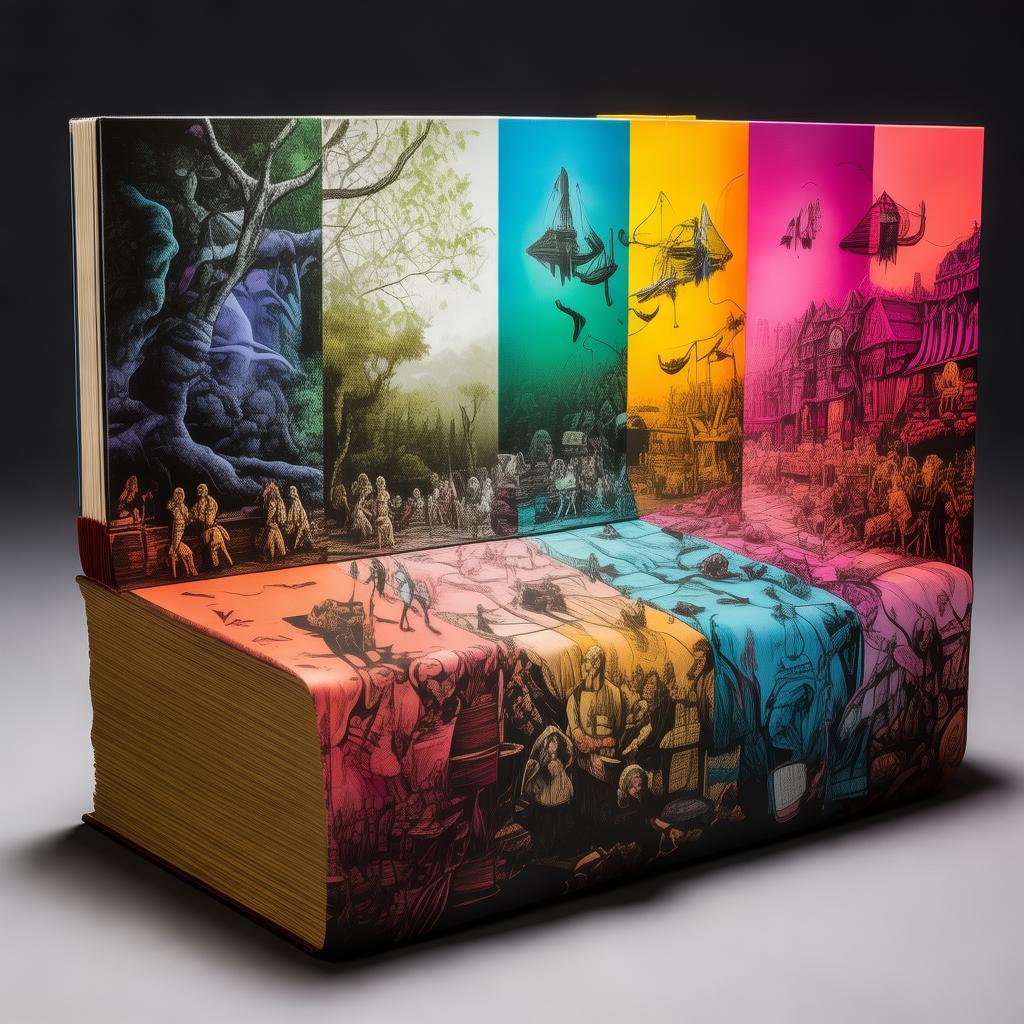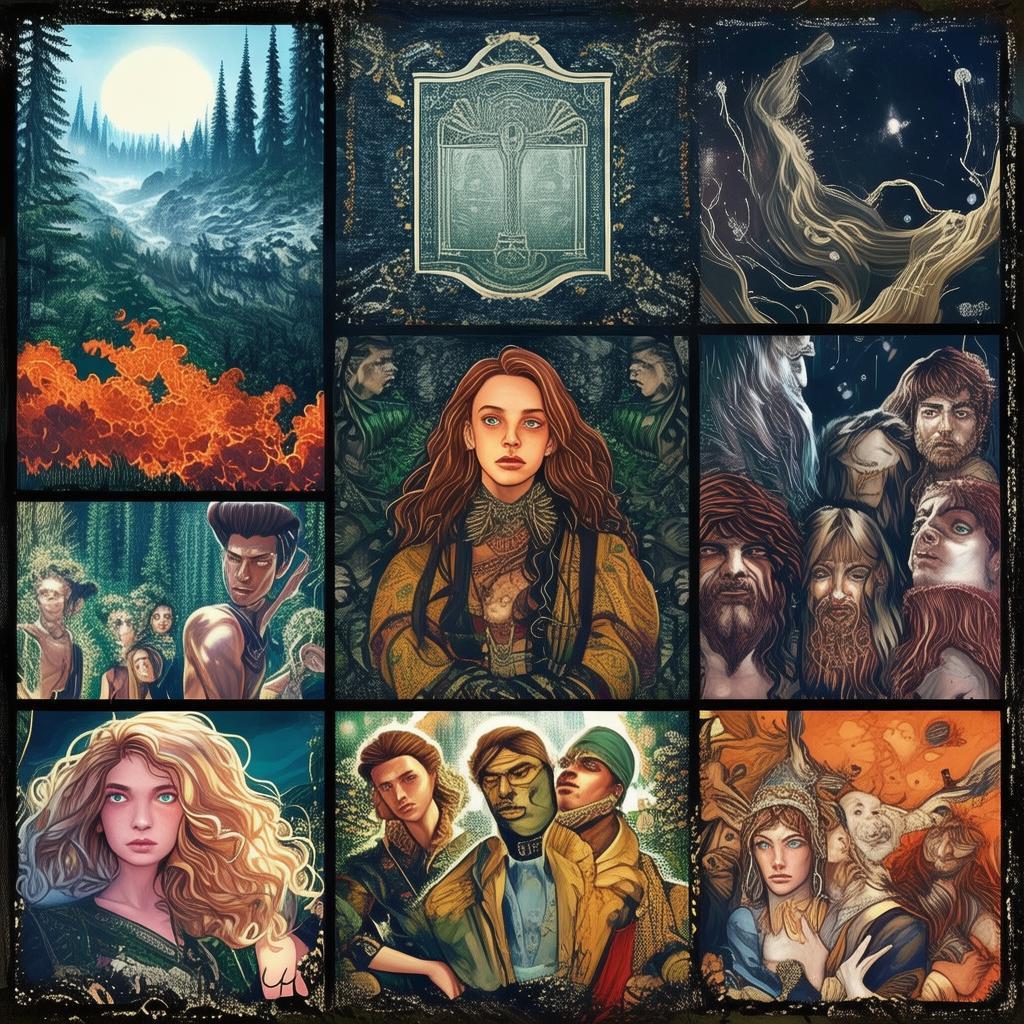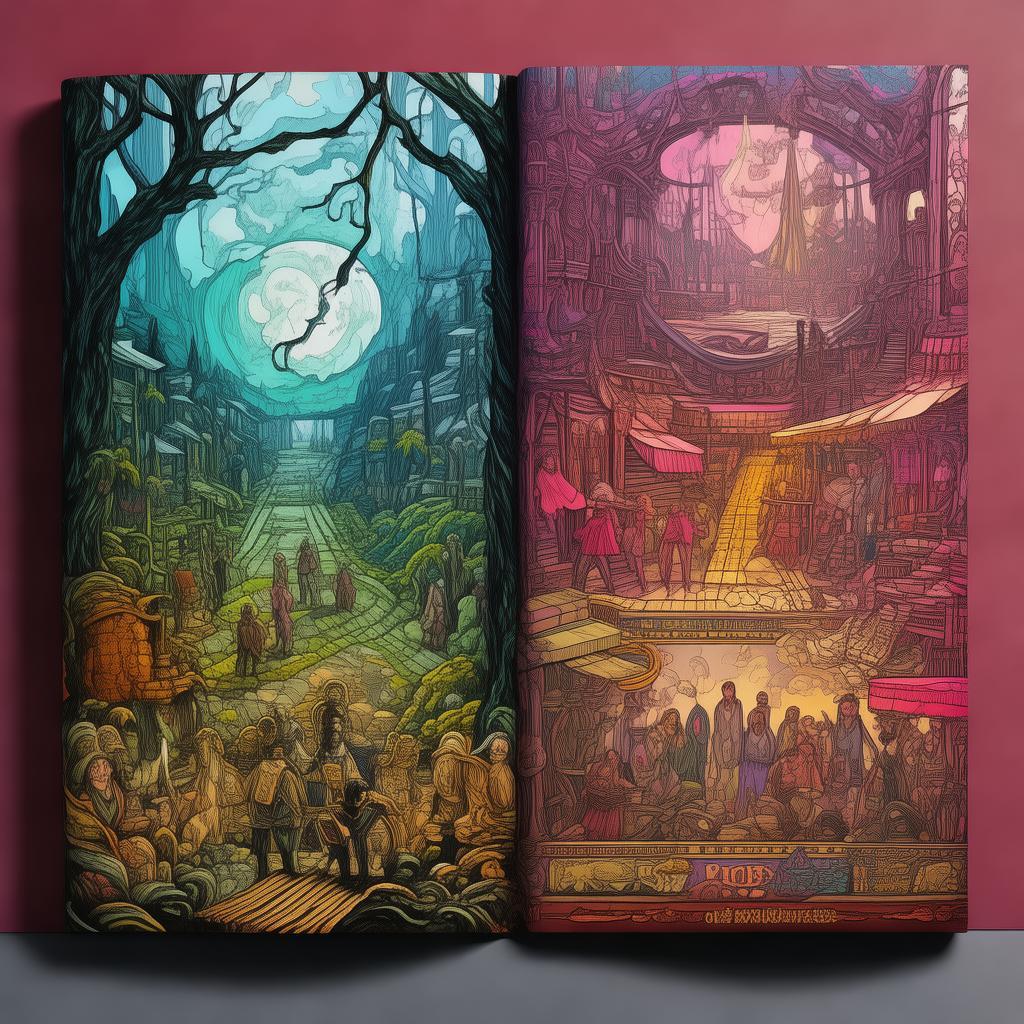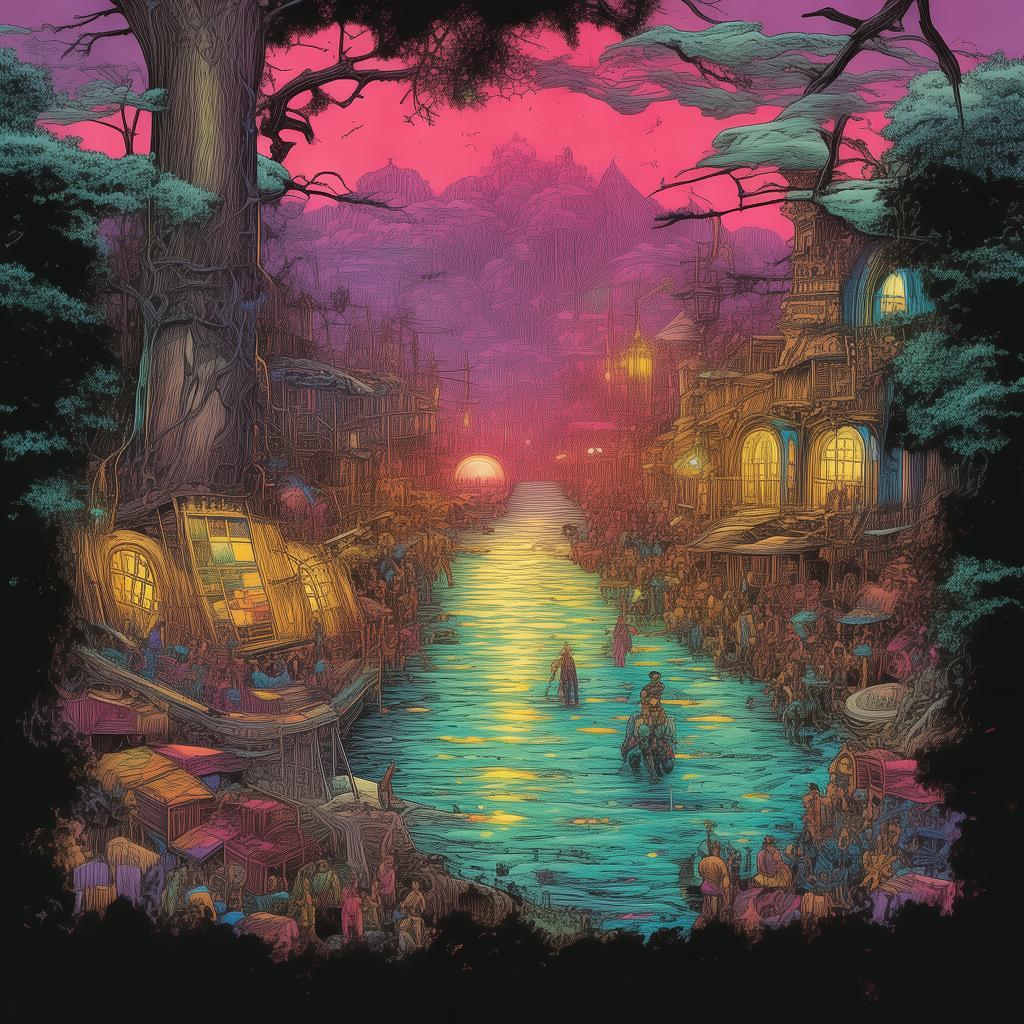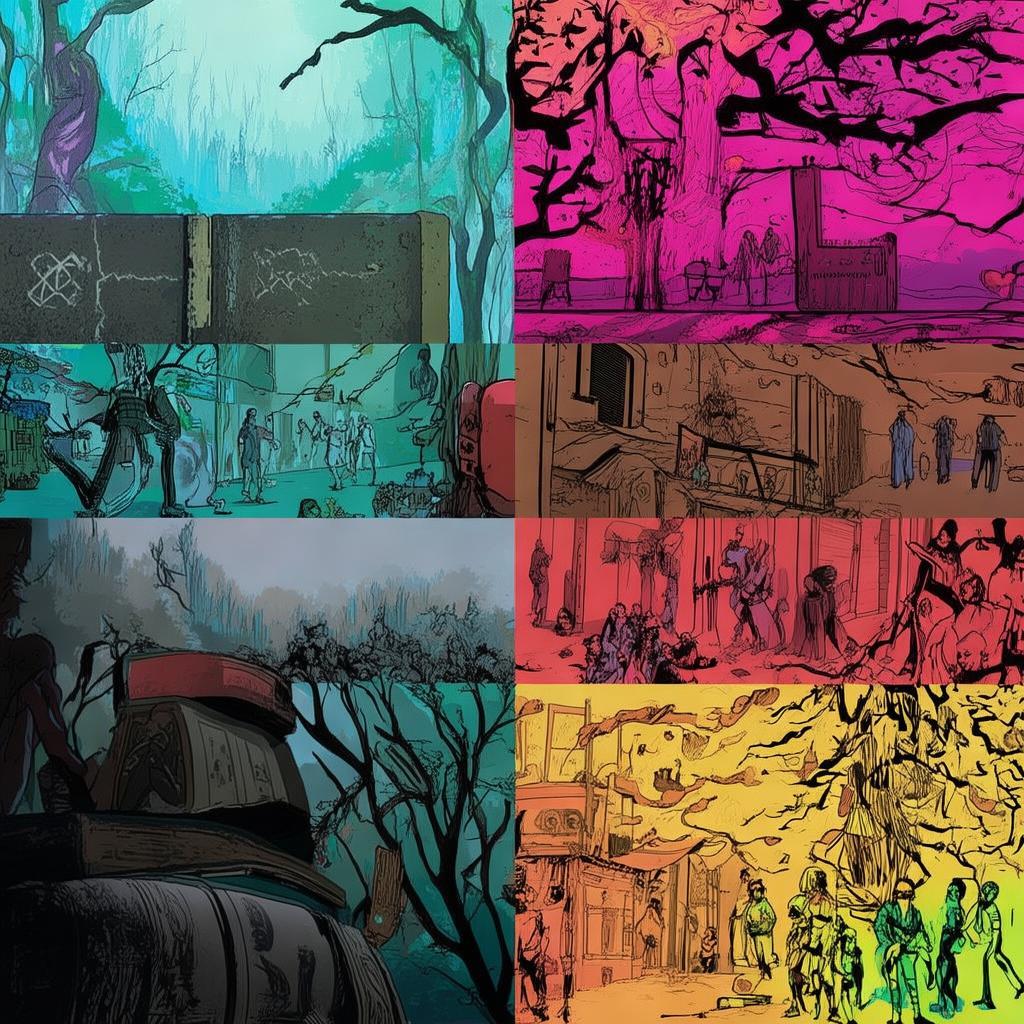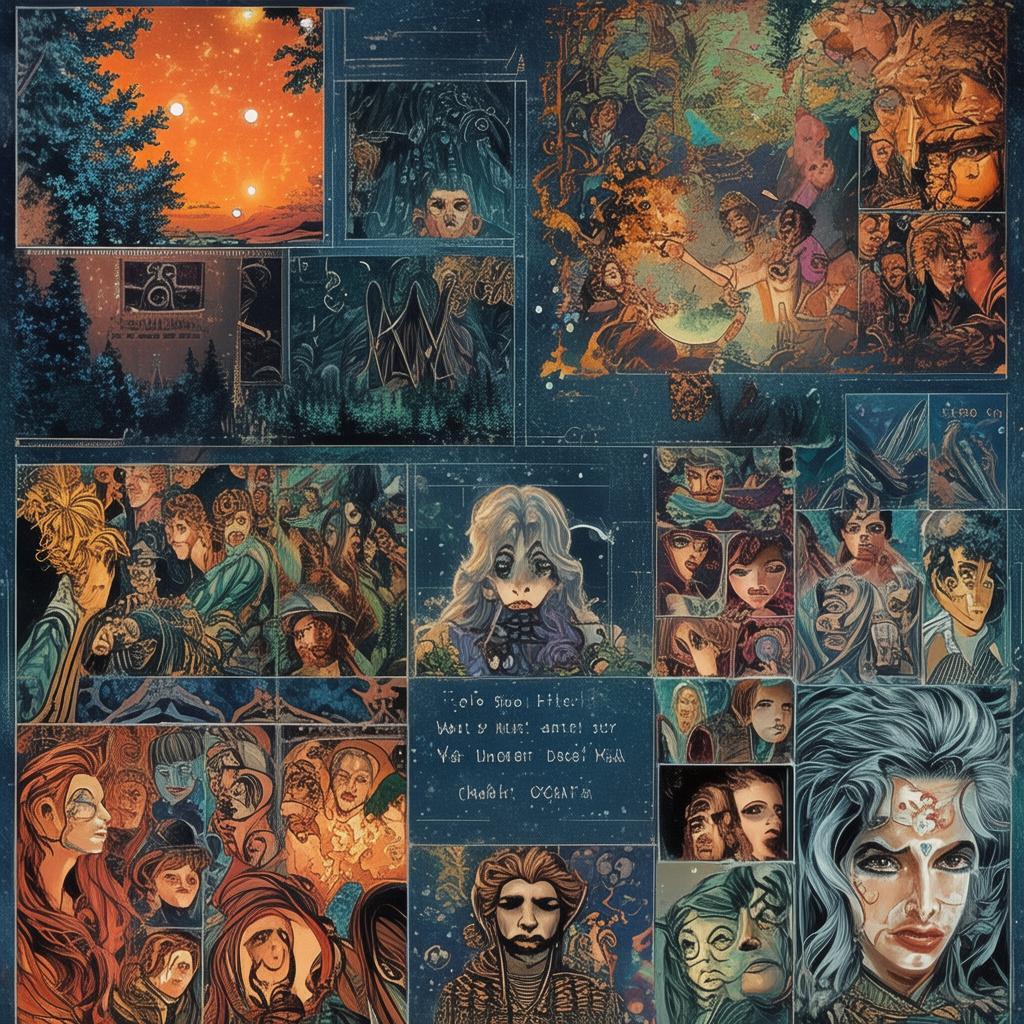The Listening Picture Book Symphony
In the quaint village of Harmonia, nestled between rolling hills and whispering forests, sound was not just music—it was currency. Each note, each whisper, each laugh was valued and exchanged for the necessities of life. The people of Harmonia were bound by a unique code of sound, a language that was both beautiful and powerful.
Amara, a young girl with eyes as deep as the night sky, was born into this world with an unusual gift: she could listen to the symphony of the village, the collective heartbeat of Harmonia. Unlike the others, Amara could discern the emotions and stories woven into the fabric of every voice she heard. But this gift was not without its challenges. The symphony was a double-edged sword; it allowed her to connect with others, but it also burdened her with the weight of their secrets and sorrows.
One crisp autumn morning, as the leaves danced in the wind, Amara found herself standing before the grand piano in the village square. The instrument was a centerpiece of Harmonia, its keys calling to her like a siren. She had always been fascinated by the piano, its ability to transform simple melodies into masterpieces. Today, however, was different. The village was in turmoil, and the symphony was heavy with tension.
Amara's mother, a weaver with fingers that danced over the loom, had been absent from their home for days. The village had grown silent, the symphony missing her voice. Amara's heart ached for her, and she knew that her mother's absence was more than just physical. It was a dissonance in the village's melody, a gap that needed to be filled.
As Amara sat down at the piano, her fingers danced across the keys. She closed her eyes, letting the symphony of the village flow through her. Each note was a piece of her mother's voice, each chord a memory. She played not just to express her love, but to reach out to her mother, to bridge the gap that had formed.
"Amara, are you all right?" a voice called out, breaking the silence.
She opened her eyes to see Liora, her childhood friend and the village's most renowned composer, standing beside her. "I'm fine," Amara replied, her voice tinged with emotion. "I'm trying to reach my mother through the music."
Liora's eyes softened. "You know, sometimes the best way to communicate is not with words, but with sound."
Amara nodded, her fingers moving faster now, the music becoming more intense. She felt the symphony around her, felt her mother's presence in the air, and in the notes she played. The villagers gathered, drawn by the music, their own emotions and stories woven into the melody.
As the symphony reached its crescendo, a figure emerged from the crowd. It was her mother, her face weary but filled with joy. "Amara," she whispered, tears in her eyes. "I've been listening to you."
The village burst into applause, the symphony of Harmonia reaching a new peak. Amara's mother took her hand, and together they danced, the music of their hearts in perfect harmony.
But the symphony of Harmonia was not without its challenges. As the villagers celebrated, whispers of envy and resentment crept into the melody. Some saw Amara's gift as a threat, a currency that could make them feel insignificant.
One evening, as the sun dipped below the horizon, casting a golden glow over Harmonia, Amara was confronted by her father, a man known for his stern and unyielding nature. "You think you're special, don't you?" he asked, his voice a mix of anger and frustration. "You have the gift of listening, but what about the rest of us? We work hard, and we have our own stories to tell."
Amara's heart ached. She knew her gift was special, but she also understood the struggles of those around her. "I'm not trying to be special," she replied, her voice steady despite the fear that gripped her. "I'm just trying to connect, to understand."
Her father's expression softened, and he sighed. "Amara, your gift is a powerful one, but it comes with a responsibility. You must use it wisely, to bring people together, not to divide them."
Amara nodded, her resolve strengthened. She knew that her gift was not just a tool for her own emotional journey, but a bridge that could connect the hearts of Harmonia.
In the days that followed, Amara began to use her gift in new ways. She visited the elderly, listening to their stories and playing music that brought joy to their hearts. She helped the young, using her gift to comfort them during their struggles. And she worked with Liora, composing music that reflected the voices of the village, the symphony of Harmonia.
The village began to change, the symphony growing richer and more diverse. The gift of listening was no longer a source of division, but a force for unity. Amara's journey had become the journey of Harmonia, a testament to the power of understanding and connection.

One night, as the stars twinkled above, Amara sat by the window, the symphony of the village flowing through her. She thought of her mother, of her father, of Liora, and of all the people she had helped. She realized that her gift was not just about listening to others, but about hearing the music of their souls.
And so, as the symphony of Harmonia played on, Amara found her place within it, her voice a note of hope and understanding. She had learned that the true power of listening was not in the act itself, but in the love and compassion that it inspired.
In the end, the Listening Picture Book Symphony was not just a story of music; it was a story of humanity, of the power of connection, and of the symphony that beats within each of us.
✨ Original Statement ✨
All articles published on this website (including but not limited to text, images, videos, and other content) are original or authorized for reposting and are protected by relevant laws. Without the explicit written permission of this website, no individual or organization may copy, modify, repost, or use the content for commercial purposes.
If you need to quote or cooperate, please contact this site for authorization. We reserve the right to pursue legal responsibility for any unauthorized use.
Hereby declared.

